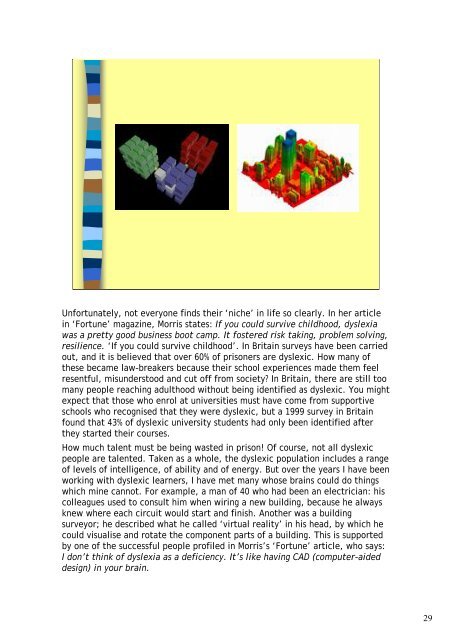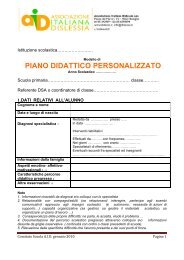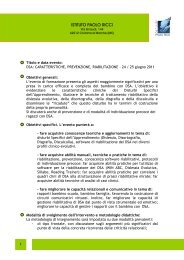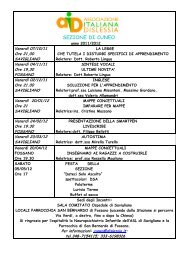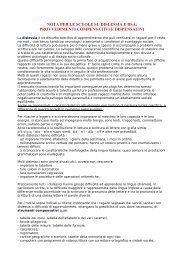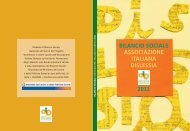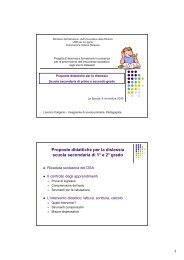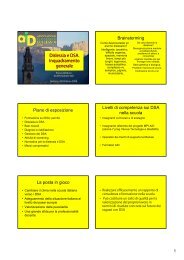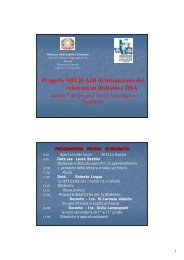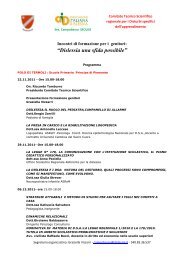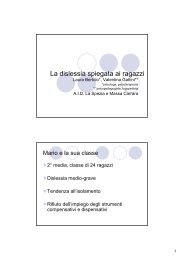Una visione d'insieme della dislessia nel Regno Unito e nel resto ...
Una visione d'insieme della dislessia nel Regno Unito e nel resto ...
Una visione d'insieme della dislessia nel Regno Unito e nel resto ...
Create successful ePaper yourself
Turn your PDF publications into a flip-book with our unique Google optimized e-Paper software.
Unfortunately, not everyone finds their ‘niche’ in life so clearly. In her article<br />
in ‘Fortune’ magazine, Morris states: If you could survive childhood, dyslexia<br />
was a pretty good business boot camp. It fostered risk taking, problem solving,<br />
resilience. ‘If you could survive childhood’. In Britain surveys have been carried<br />
out, and it is believed that over 60% of prisoners are dyslexic. How many of<br />
these became law-breakers because their school experiences made them feel<br />
resentful, misunderstood and cut off from society? In Britain, there are still too<br />
many people reaching adulthood without being identified as dyslexic. You might<br />
expect that those who enrol at universities must have come from supportive<br />
schools who recognised that they were dyslexic, but a 1999 survey in Britain<br />
found that 43% of dyslexic university students had only been identified after<br />
they started their courses.<br />
How much talent must be being wasted in prison! Of course, not all dyslexic<br />
people are talented. Taken as a whole, the dyslexic population includes a range<br />
of levels of intelligence, of ability and of energy. But over the years I have been<br />
working with dyslexic learners, I have met many whose brains could do things<br />
which mine cannot. For example, a man of 40 who had been an electrician: his<br />
colleagues used to consult him when wiring a new building, because he always<br />
knew where each circuit would start and finish. Another was a building<br />
surveyor; he described what he called ‘virtual reality’ in his head, by which he<br />
could visualise and rotate the component parts of a building. This is supported<br />
by one of the successful people profiled in Morris’s ‘Fortune’ article, who says:<br />
I don’t think of dyslexia as a deficiency. It’s like having CAD (computer-aided<br />
design) in your brain.<br />
29


